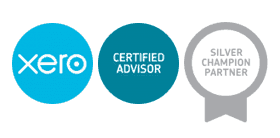It’s a tricky time to be operating in the construction industry. As seen with the recent collapses of multiple Australian construction companies, increased operating costs and a downturn in revenue can quickly result in defaults and insolvency. It sounds simple, and it’s not always easy, but the best way to safeguard your business from the myriad challenges confronting the industry is to ensure that cash flow is regular and protected. If you have the money to pay the bills, then you’re more likely to survive and thrive.
If you’re witnessing the profit margins of fellow construction companies dwindle, consider the following five tips to assist in making your credit collection debts faster and more efficient. Not only could it save you and the team time, but it may also prevent you from swimming too close to a drowning business.
If debtors are experiencing problems, you need to ensure that you collect a debt prior to a disaster. The simplest way to manage this process is through the debt collection and customer analysis tools, from CreditorWatch. Consider the following five debt collection tips for construction businesses in Australia:
Tip #1: Don’t let overdue debts slide
Post-pandemic, overheads and wages have risen and the supply chain remains fickle. While you may be sympathetic to the plight of trading partners, the longer their debts are overdue, the higher the risk to your business. You must stay on top of your debt collections in a timely manner, reminding debtors that payment is due and that you will take action if it is not received.
If a debt is overdue for a considerable period, you may not recover the money that you are owed prior to that partner business going insolvent. There is a reason why a debtor drags their heels, and it’s often cash flow troubles. They are essentially indicating to you, through their late payment, that not all is well within their business. A bad debt collection process may result in too little compensation too late, as well as potentially fraying the business relationship.
The sooner you can recover the money owed and create distance between you and your troubled trading partner, the better the outcome will likely be for you. Thankfully, the debtor management tools from CreditorWatch allow you to be proactive. Through the implementation of DebtorLogic, you can identify debtors with deteriorating payment tendencies in real-time.
You may then choose to automate a payment reminder notice to be triggered as soon as any debt is overdue, using the CreditorWatch Collect debt collection tool, to ensure that nothing slips through the cracks.
Tip #2 – Implement rock-solid terms and contracts, and ensure all agreements are in writing
Nothing should be left to chance, especially the terms of your agreements. There are some unscrupulous businesses out there, and if some are given the opportunity to worm their way out of payment through a loophole in the T&Cs they’ll take it. Similarly, the days of trusting in a handshake agreement are well past us. Everything must be in writing and signed accordingly, or else there is no deal. Put a template in place to manage this.
For CreditorWatch customers, these terms and conditions can be laid out in no uncertain terms from the very outset of the trading relationship. With onboarding platform, ApplyEasy, any credit application to your business will be legitimate, official, and on-record. As a business owner, you can ensure that the digital application form contains the necessary fields to ensure that the agreement is secure and all necessary information is provided (as well as allowing you to add any further custom fields particular to your business).
Once their application is approved, customers can further use the CreditorWatch suite to send a welcome letter to debtors, again outlining the payment terms and particulars of the agreement. This due diligence reduces your exposure to litigation and ensures that all parties clearly understand the terms of the agreement to avoid disputes.
Tip #3 – Consider a payment arrangement with the debtor
Scheduling payments to process automatically at a nominated time creates clarity for both debtor and creditor. It may be worth discussing the terms of payment with trading partners and more clearly establishing the process by which you’ll collect. This discussion goes beyond outlining a ‘pay within 14 days’ style of arrangement, instead nominating the exact dates.
As opposed to the uncertainties of nominating a flexible period of time to pay, both businesses can instead create a more specific understanding of exactly what day payment should be expected and then how to budget accordingly. This type of arrangement prevents the scenario of waiting, not knowing if and when payment is coming through and whether or not a partner business is still in good health. For whatever reason, if the money owed does not come through on that exact day, you can immediately take steps to follow up.
Tip #4 – Use debt collection letters with CreditorWatch branding
Using CreditorWatch branding on debt collection letters such as letters of demand has been shown to increase the chance of receiving payment by 53 per cent. With cash flow as critical as it is currently within construction, this could mean the difference between a healthy business and an insolvent one.
Debt collection letters are a powerful tool in the belt of scorned creditors. If a debtor is late in payment, a well-formed letter alerts them to your knowledge of the situation, and intention to collect expeditiously. It may be the shock to their system required to prioritise payment and avoid further action. If you choose not to send a debt collection letter, it may empower the lazy debtor to continue dragging their heels. They may feel as if you are unwilling or unable to track the money owed to you and that they have extra time to get their act together. This is unacceptable.
While a debt recovery letter is powerful in its most basic form, the addition of CreditorWatch branding adds teeth. Now the trading partner will know that you are not only aware of their late payment; you also have the full weight of a credit reporting agency behind you. If they default, you can choose to officially register this on the CreditorWatch platform, negatively affecting their ability to trade with other businesses and decreasing their credit score.
Tip #5 – Adjust supply terms if the job is ongoing
As you recognise a debtor’s payment tendencies deteriorating, as allowed by the 24/7 monitoring and alerts within DebtorLogic, it may be in your best interests to adjust the supply terms of any ongoing agreement. It can be extraordinarily risky for your business to further extend lines of credit to a trading partner running into cash flow issues and rising overheads.
Adjusting the terms so that a debtor pays upfront or on delivery mitigates this. You can collect the money you are owed and contain the trading relationship so as to avoid the same cash flow issues that the debtor may be witnessing. The more creditworthy a trading partner is, the less necessary it is to ensure up-front payment – as you can feel safer in their ability to service this debt over time.
The important part is that you know well ahead of time which trading partners may need their supply terms adjusted. Just because they were in good health at the outset of the relationship doesn’t mean that everything is smooth sailing now. You must continually observe their payment tendencies in order to take action proactively. Manually monitoring these businesses would be almost impossible, but thankfully CreditorWatch automates the process and verifies client data through seamless integration of Xero and MYOB accounting packages. With our debtor management suite in play, you’ll know as soon as any associated entity becomes risky.
Within the high-cost world of construction, the process of debt recovery might mean the difference between having the necessary cash on hand to pay the bills or not. It’s essential you prioritise debt collection in order to ensure that your customer meet their repayments and you avoid the prospect of default and insolvency at all costs.









